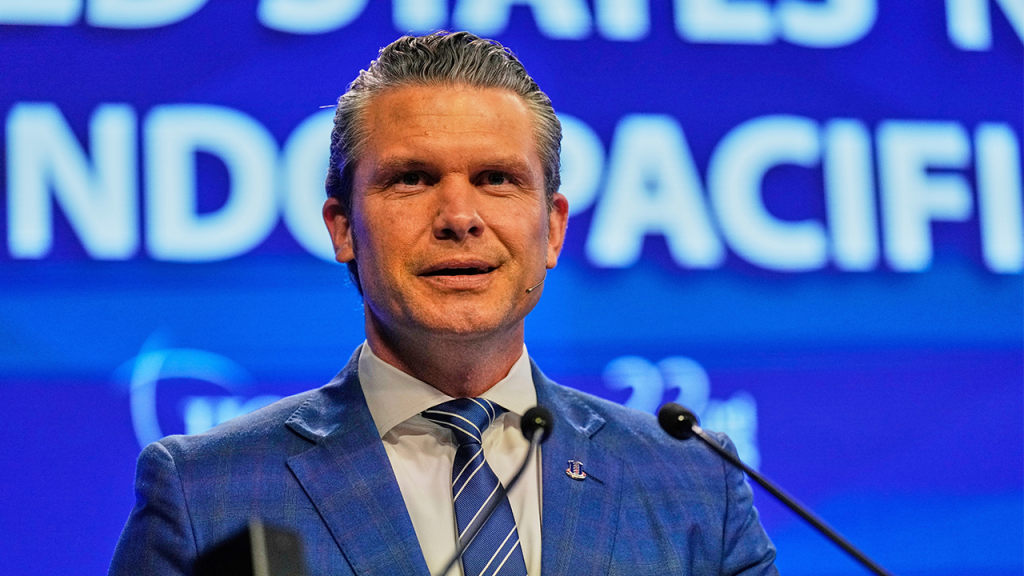Recent remarks by U.S. Defense Secretary Pete Hegseth at the Shangri-La Dialogue security conference in Singapore have incited strong criticism from Chinese officials. Hegseth labeled China as a genuine threat to stability in the Indo-Pacific, arguing that the Chinese military is actively preparing for potential conflict over Taiwan. In retaliation, the Chinese Foreign Ministry accused Hegseth of perpetuating a Cold War mentality and made strong statements condemning U.S. actions in the Asia-Pacific region.
| Article Subheadings |
|---|
| 1) Criticism from the Chinese Foreign Ministry |
| 2) Hegseth’s Stance on China’s Threat |
| 3) Responses to the Taiwan Issue |
| 4) U.S. Military Strategy in the Indo-Pacific |
| 5) Implications for U.S.-China Relations |
Criticism from the Chinese Foreign Ministry
Following Pete Hegseth‘s remarks, the Chinese Foreign Ministry released a statement condemning his comments. They accused Hegseth of adopting a “Cold War mentality” and asserted that his statements served to vilify China without considering the calls for peace and cooperation by nations in the region. According to the Chinese officials, Hegseth’s approach undermines regional harmony and promotes military confrontation.
The spokesperson for the Ministry insisted that only the United States could accurately be termed a hegemonic power, further criticizing its role in exacerbating tensions in the Asia-Pacific. They claimed that Hegseth’s remarks were not just provocative but intended to incite distrust among countries in the region.
Hegseth’s Stance on China’s Threat
During his speech, Pete Hegseth characterized the threat posed by China as “real” and potentially “imminent.” He pointed out that the Chinese military is no longer just building its forces but is actively training for a potential invasion of Taiwan. His comments starkly illustrated the ongoing air of urgency concerning U.S. defense strategies in the face of perceived encroachment from China.
Hegseth’s declarations aimed to bolster U.S. military readiness and emphasized the need for vigilance against China’s growing military capabilities. According to him, the U.S. could not afford to underestimate the adversary as the geopolitical landscape shifts. He reiterated that the Pentagon is committed to strengthening its military footprint in the region to counter any escalating actions from China.
Responses to the Taiwan Issue
The debate over Taiwan has emerged as a focal point of U.S.-China relations, especially after Hegseth’s remarks. The Chinese Foreign Ministry responded emphatically, asserting that Taiwan remains an internal issue for China, and warned the U.S. against “playing with fire.” They emphasized that no foreign power has the right to intervene in the Taiwan issue, reaffirming China’s stance on maintaining its territorial integrity.
The ministry articulated that Washington should cease its support for proponents of “Taiwan independence” and adhere to established agreements regarding the One-China Policy. This context has further cemented the belief on both sides that tensions surrounding Taiwan will likely escalate unless quickly addressed through diplomatic dialogue.
U.S. Military Strategy in the Indo-Pacific
In response to increasing risks, the U.S. government is planning to bolster its military presence in the Indo-Pacific. Hegseth insisted that this entails not only enhancing U.S. defenses but also encouraging international partners in the region, particularly in terms of defense expenditures. His remarks highlighted the expectation for allies to step up their contributions to collective security efforts.
As part of this strategy, Hegseth has called for “uncomfortable and tough conversations” among allies to ensure that they share a unified approach toward potentially hostile actions from China. However, this strategy could complicate diplomatic relations in the region, as other nations may harbor concerns regarding the potential for increased militarization and conflict.
Implications for U.S.-China Relations
The unfolding situation underscores significant implications for U.S.-China relations. Tensions have escalated further following Hegseth’s comments, with Beijing viewing them as a direct challenge to its national integrity. Experts suggest that this confrontational stance could lead to a deterioration in bilateral dialogue and cooperative efforts on pressing global issues such as climate change and trade.
Through pointed criticisms and military posturing, both nations appear to be at an impasse, which may have long-term repercussions for stability in the region. Furthermore, the rhetoric surrounding military deployments and geopolitical strategy indicates a growing friction that calls into question the effectiveness of current diplomatic approaches.
| No. | Key Points |
|---|---|
| 1 | U.S. Defense Secretary Pete Hegseth described China as a legitimate threat to the Indo-Pacific. |
| 2 | The Chinese Foreign Ministry criticized Hegseth, accusing him of adopting a Cold War mentality. |
| 3 | Hegseth emphasized the need for increased military preparedness to counter potential Chinese aggression towards Taiwan. |
| 4 | China reaffirmed that Taiwan is an internal matter and condemned U.S. intervention in its policies. |
| 5 | The U.S. plans to boost its military presence in the Indo-Pacific and expects its allies to contribute more to joint defense efforts. |
Summary
The comments made by U.S. Defense Secretary Pete Hegseth at the Shangri-La Dialogue have provoked considerable backlash from China, highlighting the rising tensions between the two powers. The situation underscores a complex array of geopolitical issues that could complicate future diplomatic relations. As both nations navigate their confrontations, the potential for conflict looms, particularly in regard to Taiwan, which remains a critical flashpoint for both countries.
Frequently Asked Questions
Question: What did Hegseth say about the Chinese military’s activities?
Hegseth indicated that the Chinese military is actively preparing for a potential invasion of Taiwan, characterizing the threat as real and immediate.
Question: How did China respond to Hegseth’s remarks?
The Chinese Foreign Ministry criticized Hegseth’s comments, accusing him of promoting a Cold War mentality and insisting that Taiwan is an internal issue that should not involve U.S. intervention.
Question: What is the significance of Taiwan in U.S.-China relations?
Taiwan represents a critical area of contention, with both nations holding opposing views on sovereignty and military action; it is a focal point that could ignite broader conflicts if mismanaged.


